Our friend Peter Owen Bannon died on June 16, 2022 after suffering the effects of Agent Orange exposure in Vietnam. We are reposting the story that he wrote for us several years ago.
by Peter Owen Bannon
It has taken me weeks to try to wrestle this story onto the page. I was thrilled when Barbara asked me to do this for ConsumerMojo. Then it dawned on me that she had asked me to tell my story of lung cancer and the treatment by the Veteran’s Administration. The whole thing depresses and confuses me.
I have been granted a 100 percent service-connected disability because I was exposed to Agent Orange in Vietnam. A few problems make the effort of writing about this even more taxing: chemo brain (confusion and spotty memory), peripheral neuropathy, lack of balance, depression and ongoing draining anxiety.
I will try to explain everything before I exhaust your interest and my concentration. Yoda says, “Don’t try. Just do.” So here goes.
Agent Orange was the number one herbicide U.S. forces sprayed in Vietnam from 1961 to 1971. We used more than 11 million gallons, at more than 50 times the concentration recommended by manufacturers, to destroy the triple canopy of jungle vegetation that allowed the enemy to hide. We also sprayed to destroy the crop lands that fed the Vietcong.
The poison came in 55 gallon drums with an orange stripe painted around them, and hence the name. The fifty-fifty mix of 2,4-D and 2,4,5-T herbicides also contained dioxin and while the herbicides disappeared and degraded in a few days or weeks, the dioxin lingered.
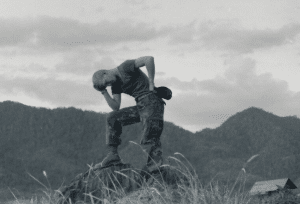
At the time, we thought the witches’ brew was safe. They didn’t hand out protective gear and they didn’t warn us when they sprayed Agent Orange.
I told Madam Mojo that I could not remember what Agent Orange smelled like when it rained down on the jungle and the Ho Chi Minh Trail. But I recall now. It smelled like the kerosene or diesel fuel that got mixed in when we sprayed it from airplanes, helicopters, trucks and backpacks.
My nose dripped heavily for weeks after a spraying and our corpsmen (medics) would hand out nose drops for what they said were normal allergies. I also remember my eyes burning when rain dripped off my helmet.
This 1968 photo shows me, First Lieutenant Peter Owen Bannon, healthy and handsome, hiding in a trench at LZStud/Vandergrift Combat Base near the DMZ before my exposure to Agent Orange.
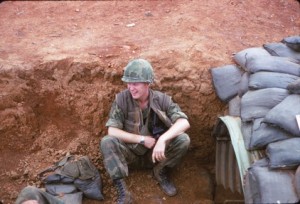
My external wounds during the war were superficial and I was so relieved to return from Vietnam with four limbs and all my digits. After more than a year, I got to see my beautiful wife Theresa again, and our six-month-old son for the first time.
I did not have a terrible homecoming with tormenting flashbacks. I thought I had done my duty, not my job to decide where or why to fight. I did as I was told to protect my country, my family and my friends.
Forty-six years later, in August 2012, a routine chest X-ray at the local VA hospital showed a nodule in my right lung. A biopsy the next month confirmed that I had stage-one lung cancer. My doctor performed a lobectomy with video-assisted thoracoscopic surgery. He made two small holes in my back, one for the camera and the other for the instruments, and removed the top lobe of my right lung.
I thought I was lucky: no ripping up the ribs, cancer caught early, the prognosis was good, and no medication or therapy.
Things went well for the first year. No recurrence.
But in the spring of 2014, the x-ray biopsy and CT scan showed six new cancerous nodules in the right lung. When I asked my surgeon why it came back, he looked down and said, “We don’t know.”
I was shocked. I thought the cancer was gone. Instead, it came back stronger than before. It had not metastasized or spread, and it was still only in my right lung. That was the good news.
On the flip side, surgery was not an option.
The surgeon recommended palliative care, which focuses on pain relief and easing the stress of a life-threatening illness. It also offers emotional and spiritual support for the the patient and the family.
During that summer of 2014, I still had a bit of stiffness and soreness where they drilled through my back into my lung. I was off pain meds and was back to walking at about three plus miles per hour and yet, I felt pretty good.
Then the chemotherapy began.
Chemo goes after fast growing cells. That’s good for killing replicating cancer cells. But it also goes after all the fast growing cells we have in our hair, nails, lining of the mouth and throat, our blood cells and more.
The VA uses a potent cocktail of Paclitaxel and Carboplatin delivered by a drip infusion. Technicians administered the Paclitaxel for a little over three hours and then gave me the Carboplatin for over an hour.
During this process in Charleston, South Carolina, I sat in a comfortable recliner with an IV drip in a room filled with other people like me in recliners with drips of their own. Nurses and technicians paid close attention to the patients and offered relentlessly positive encouragement. They also gave us medication to prevent nausea and other common side effects.
Doctors make a big deal about how well a patient tolerates chemo. Strong doses kill bad cells. My doctors thought that I did really well and upped the dosage. On more than one occasion, a technician who checked the bags of chemo in the infusion clinic asked, “Is this right?
After they triple checked, the infusions began. I had five infusions, one every three weeks. At first, the doctors thought the chemo worked great. But when they didn’t see any real improvement, they switched me to radiation.
For this treatment, I decided to bail out of Charleston. My primary care physician helped me set up treatment at the Anderson Cancer Institute at Memorial Health in Savanah near where I live. The VA approved it and that saved me a four-hour plus drive to Charleston.
Unlike chemo, radiation precisely targets cancer cells using huge ominous beast-like machines. The treatment didn’t hurt, but I did feel tired and had a little dry mouth at night.
But the nasty side effects of chemo stay with me. My hands and feet tingle and burn and I can not feel my feet. I have to look down when I walk and that throws me off balance.
I often climb up our cement porch on all fours to keep from falling. When I pick up a glass, I take extra care because I’ll drop it if I don’t pay attention.
I started walking again, but I can only do a mile before I run out of breath. I push it slowly.
Theresa and I visited a friend in Hilton Head this week, and I played her piano loud and late. My fingers felt much better.
Chemobrain almost got me again and I nearly forgot the one thing that helps me a lot. When my struggle to remember something or to focus gives me a headache, I take the advice of Buddhist monks the Marines brought in to teach us about martial arts. When you feel overwhelmed, stop. Walk away and breathe.
And that’s what I do, I stop. I take deep breaths and think of something lovely like the grandkids playing in the yard. I get all the other stuff off of my mind and all of a sudden, whatever I wanted to remember pops into my head.
I do this a lot.
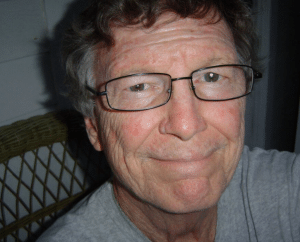
Peter Owen Bannon worked as a TV reporter and anchor in Atlanta, Savannah and New York. New Yorkers will remember him as part of a legendary WABC-TV Eyewitness News Team.
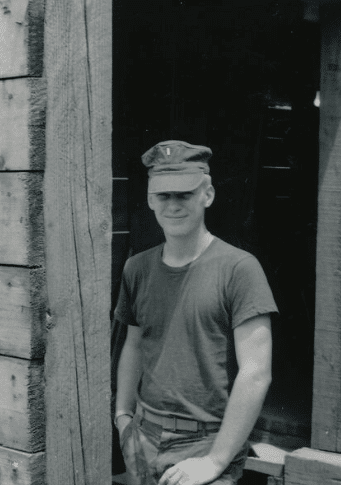
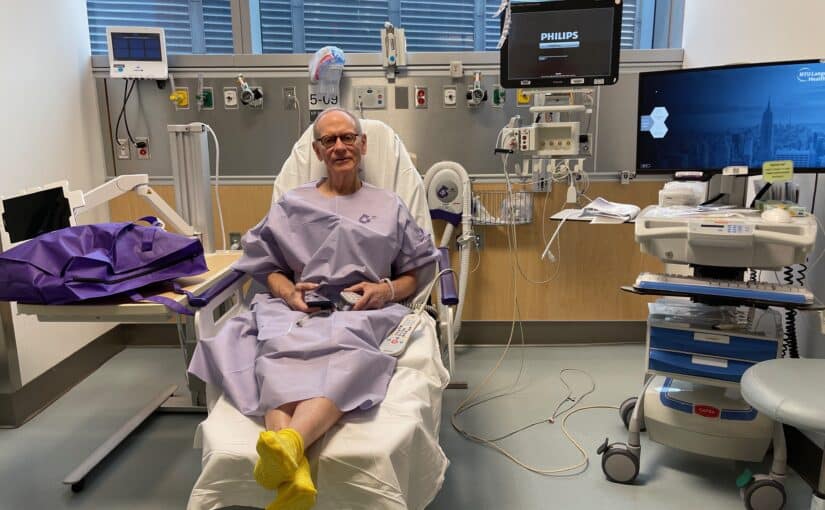
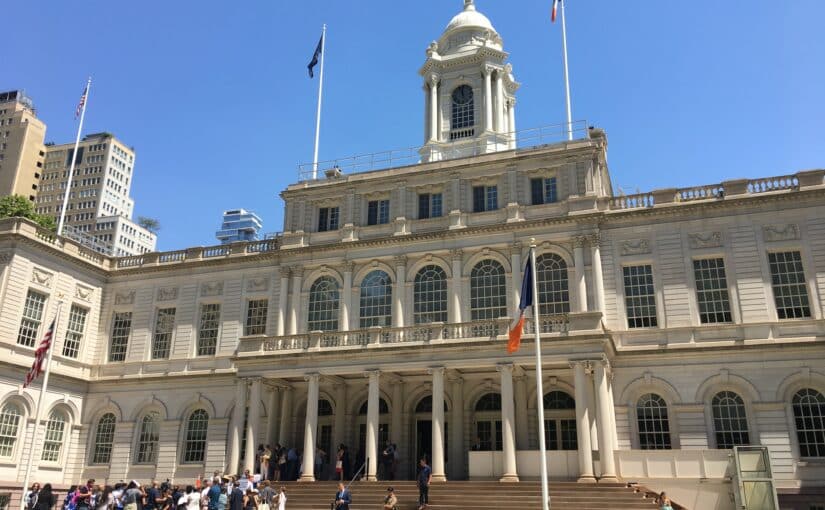
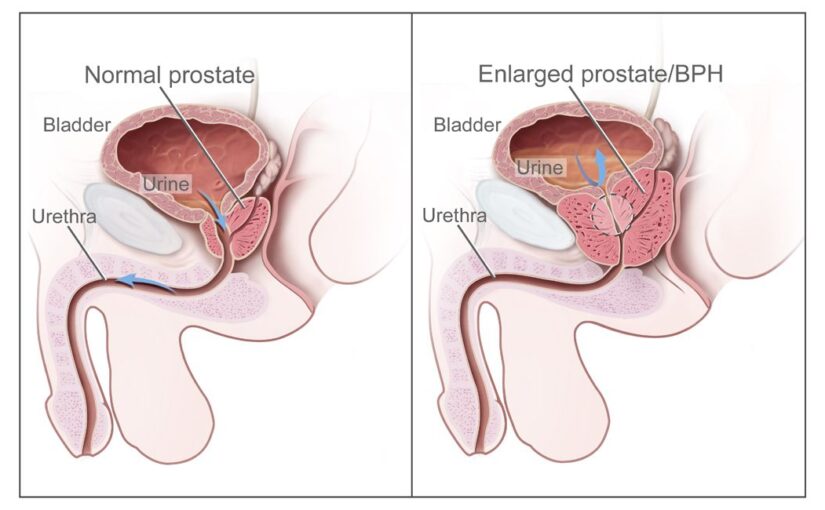
Thanks, Peter, for writing this and Nick and Barbara for publishing it. Accounts like this must be told until there is no longer a reason to tell them. Unfortunately, soldiers are treated like materiel, things to be used, often recklessly, until broken or obsolete and then cast aside.
Thanks Mike. True remembrance and honor means taking care of those who serve and help us.
Peter Bannon I remember you as an anchor and as the dad of my friend Sean. I believe you brought a news team to our class in second grade for a Halloween safety story. My brother has lasting effects from his service in Operation Desert Storm/Gulf war syndrome. We need to take better care of our vets. I hope you receive the care and compassion you deserve. Wishing you health and happiness for all your remaining days of living and enjoying life.
Thank you. Barbara and Nick
I may have troubled some folks by mentioning Buddhist monks teaching Marines martial arts. It was Zen of the Bushido code — way of the warrior. (Japanese Zen = Samurai).
It was not the martial arts “SPORTS” seen on TV and practiced in the strip mall schools.
It was about meditation, practice and mindfulness. Teaching young Marine officers the essential of being able to deal with chaos, destruction and death in a calm and cool way. Mindfully. I was so lucky to visit a Zen Monastery in Japan on my tour overseas.
Okay… Thanks Barb. I have a SHORT STORY I think is my best that needs some updating. We may have talked about this before. I need your help and direction. Please help!
Sorry Peter, I completely missed this. Let’s talk!
did this g thru?
Missed this too. Let’s talk.